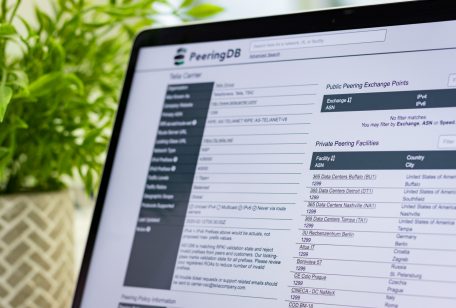
MDC Newsroom
All peering at an internet exchange point (IXP), like the MEX-IX, requires Border Gateway Protocol (BGP) sessions to be established between two or more participating members. BGP enables networks to announce their IP addresses to each other plus the IP addresses that they have provided connectivity to downstream.
At any point when you transmit data, the BGP protocol triggers a search through all of the available paths that your data could travel through and chooses the best routes between networks according to their peering policies. Peering policies are the arrangements that IXP members have created with each other. For example, your network may configure your routing information to make sure that they optimize for reduced costs in one case or reduced latency in another. But to establish and manage these peering sessions, IXPs rely on route collectors and route servers.
What is a route collector?
As the name suggests, the main function of route collectors is to gather information on each network connected to an IXP. While it does “collect” routing information it does not forward packets or broadcast routing prefixes.
Route collectors strictly run BGP and are necessary to create a public view of the routing information and members’ peering policies available at an IXP. Prospective members then use this information to assess the value of joining and it helps existing members test their BGP configurations.
For IXPs themselves, route collectors are essential for diagnostics and to collect metrics. Lastly, connecting to a route collector is mandatory to join an IXP.
What is a route server?
In order for IXP participants to exchange traffic, they have to establish bilateral peering relationships (BGP sessions) with each other. As the number of connected parties increases, it becomes harder to manage these relationships. This is where route servers come in.
By connecting to a route server, there is no need to establish individual BGP sessions with each network; on the contrary, the route server allows for multilateral peering. One connection enables traffic exchange with all participants peering with the route server.
Unlike route collectors, connecting to a route server is optional. If you decide to join only the route collector, then you will have to establish peering with each network individually.
Peering doesn’t have to be complicated, here at MDC we want you to enjoy the benefits of being part of an internet exchange without hassle. We invite you to schedule a call with one of our subject-matter experts who can answer your questions and provide more information about the MEX-IX, the only peering platform focused on Mexico.








